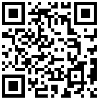In our fast-paced modern world, managing time effectively has become increasingly crucial. Yet, numerous individuals frequently stumble in this realm, leading to decreased efficiency and a constant state of busyness. This piece aims to explore 5 widespread time management gaffes we commit and offer actionable strategies to rectify them.
Underestimating Time Required
A common pitfall is the tendency to be overly optimistic about the time needed to complete a task. One study revealed that people often expect tasks to take roughly 30% longer than they actually do. This discrepancy stems from an oversight of potential barriers and delays when making predictions. To remedy this, consider utilizing a "time tracking" app to monitor how long tasks actually take. This practice can provide a more accurate reflection of your task completion time, enabling you to plan future tasks with greater precision.
Multitasking Myth
Many people believe that multitasking conserves time; however, research indicates that it usually hampers productivity. Multitasking compels our brains to continuously swap between tasks, demanding additional mental effort. A better approach is to concentrate on a singular task until completion. Studies support that deep work—devoting undivided attention to a solitary task—surpasses the efficacy of multitasking. Incorporate the Pomodoro Technique to maintain focus, taking a five-minute break after every 25 minutes of concentrated effort.
Interruptions: A Major Distraction
Interruptions, such as social media notifications, emails, and phone calls, frequently disrupt our workflow and hinder our ability to concentrate on tasks. Research shows that it typically takes about 20 minutes to return to the original task after each interruption. To mitigate this, turn off notifications or restrict sources of interruptions. Adopt the "time blocking" method to structure your workday, segmenting your tasks into designated time slots to minimize potential disturbances.
The Perils of Improper Planning
Without clear planning and organization, valuable time can be lost. Studies demonstrate that jotting down to-do lists, creating plans, and setting priorities enhance time management. Utilize tools like Todoist or Trello to facilitate organizing tasks and planning. Dedicate time each morning to formulate a plan and to-do list, ensuring that top priority tasks are front and center.
Neglecting Rest and Relaxation
Many individuals assume that maximizing time equates to non-stop work; however, extended hours can lead to burnout and reduced productivity. Skipping rest and relaxation periods impacts our capacity to focus and be innovative. The solution is to establish a balanced work and rest schedule. Findings indicate that adequate breaks can elevate productivity and creativity. Aim to achieve a "flow state," balancing work and relaxation, allowing yourself to remain focused while working and fully unwind during breaks.



